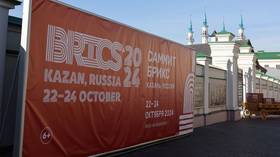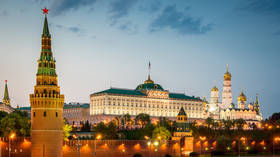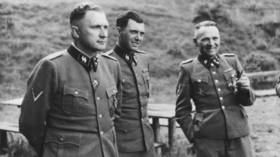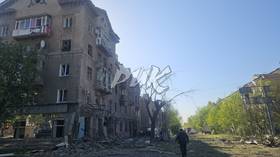Kremlin explains differences between BRICS and EU

Members of the BRICS group are not bound by mutual obligations as is the case with the EU but instead share common goals and interests, Kremlin spokesman Dmitry Peskov has said
Speaking to reporters on the sidelines of the BRICS Summit in Kazan on Tuesday, he explained that the group still “does not have the necessary attributes to be considered an organization,” such as a charter or clearly defined rules.
Instead, Peskov described BRICS as an “association of countries that share common values and common guidelines” and are committed to the universal principles of mutual respect and mutual benefit without “monocentrism.”
In contrast, the spokesman pointed out that the EU, on the other hand, is an organization that has its own statutory documents, clear rules, binding documents and “a whole set of mutual obligations.”
He also stressed that the BRICS group is not based on “friendship against someone” and is not aimed against any third countries or other models and that its only goal is the pursuit of mutual interests of all participants.
BRICS is currently holding its 16th summit in Kazan, Russia’s fifth-largest city, where dozens of foreign leaders have gathered for three days of intense diplomatic discussions and bilateral talks.
The group was founded in 2006 and originally consisted of Brazil, Russia, India, China, with South Africa joining in 2010. Ethiopia, Egypt, Iran, and the United Arab Emirates were added at the beginning of this year. The group now collectively represents an estimated 46% of the world’s population and over 36% of global GDP.
Some three dozen other countries from across the world have also expressed interest in joining BRICS or deepening ties with the group. Many have sent high-level delegations to participate in the summit in Kazan.














